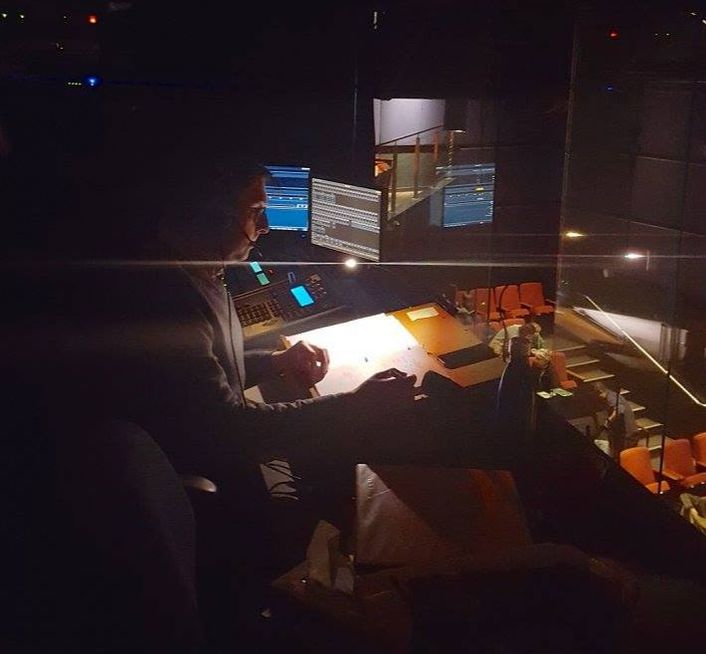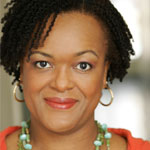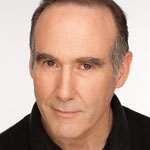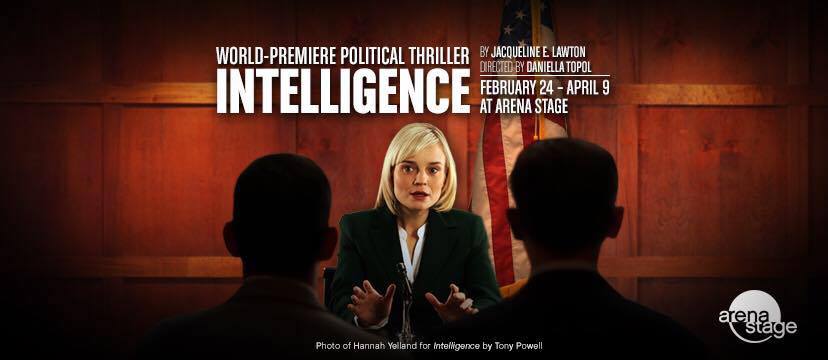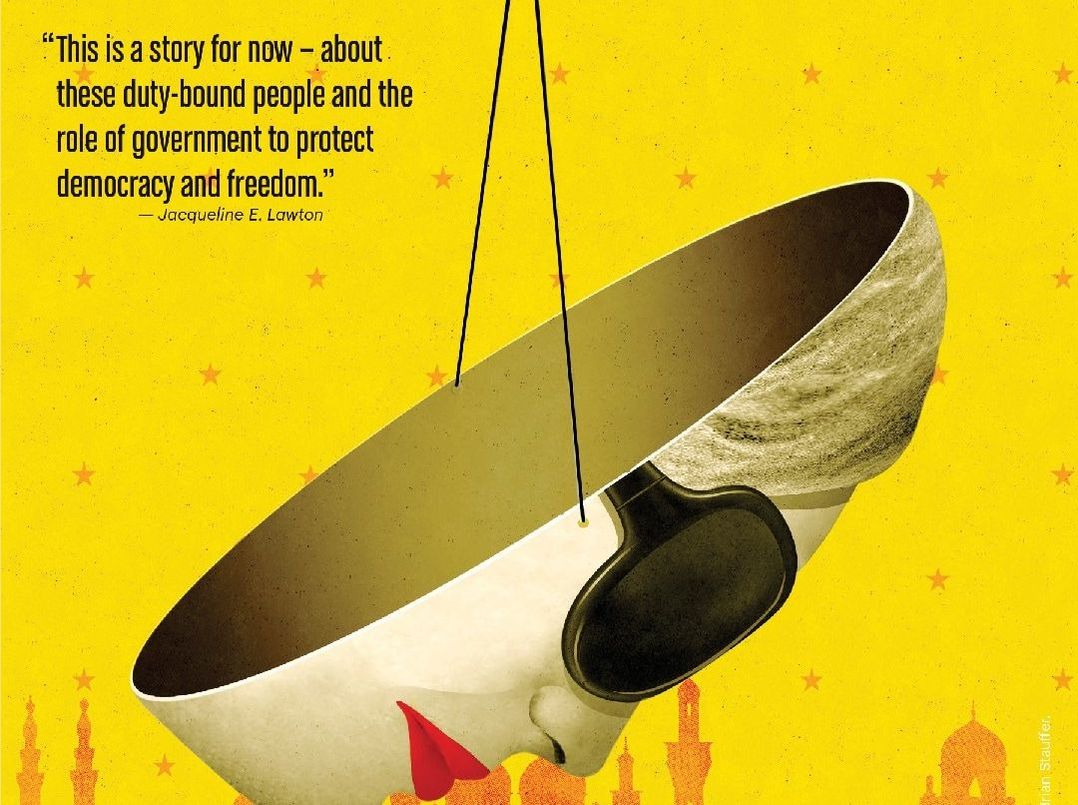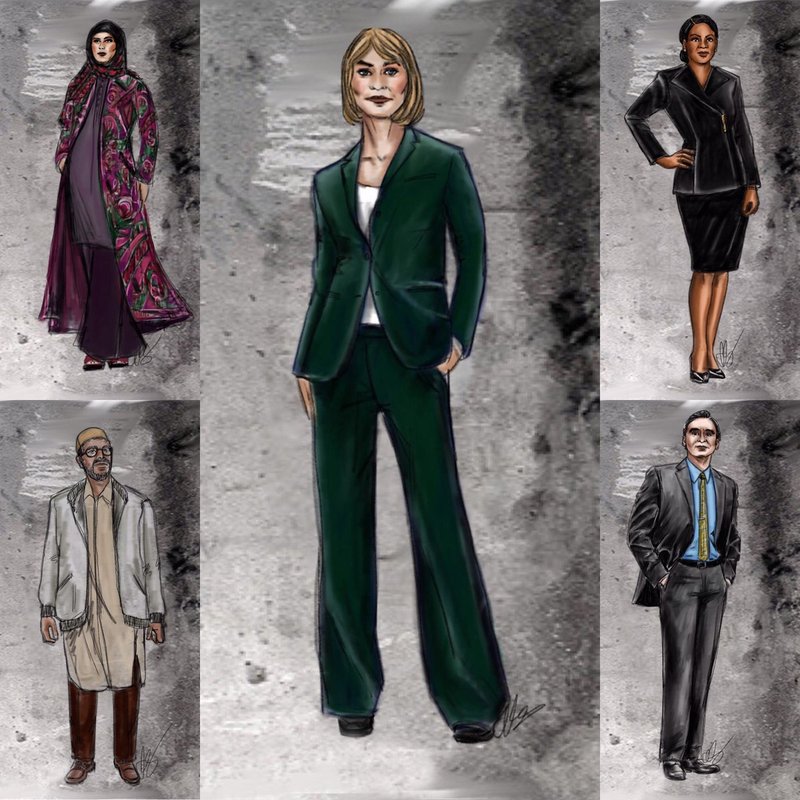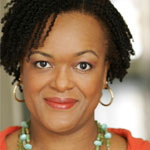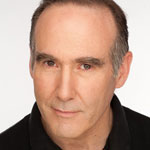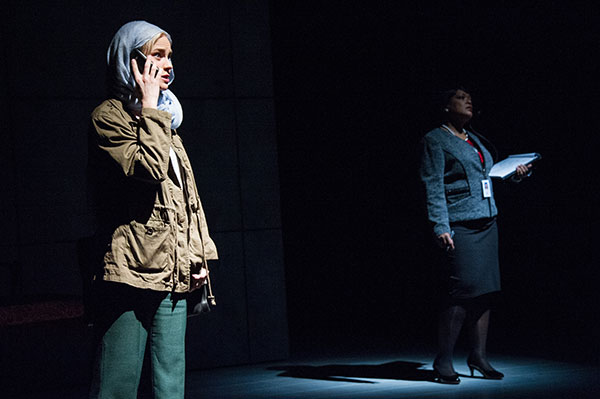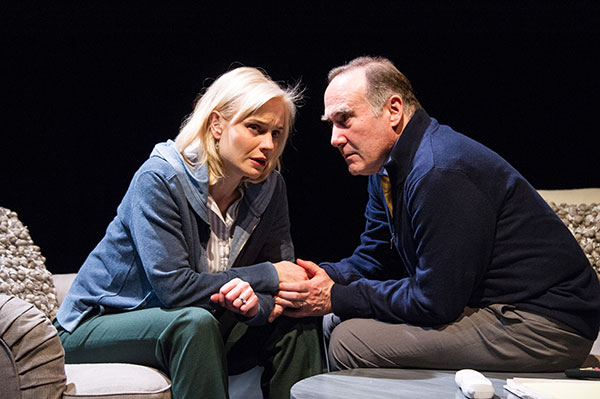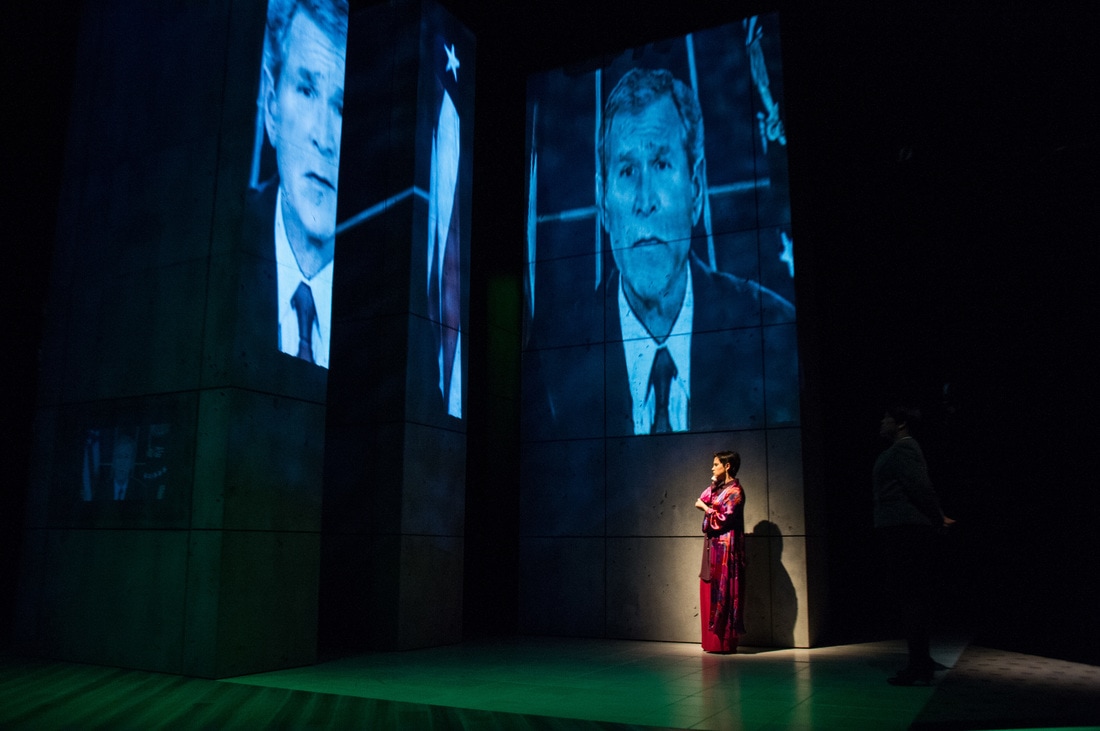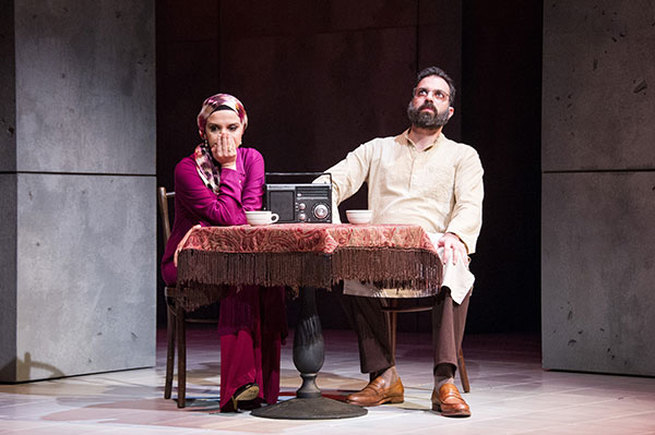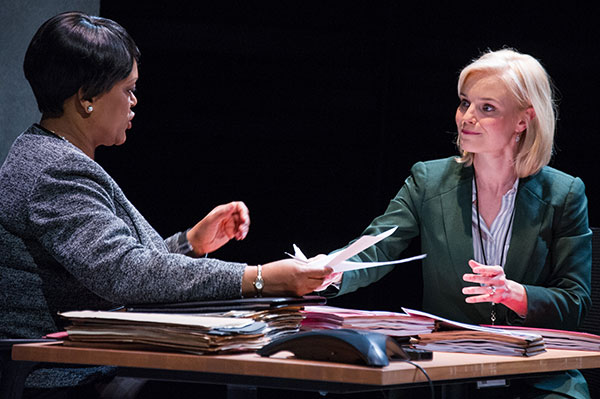|
Everyone, you are in for a real treat! If you read my Women Stage Managers of DC blog series, then you know that my love, respect, and admiration for stage managers is boundless. And I would like to state, for the record, that this production of Intelligence would not have been the success it was without our brilliant stage management team led by Trevor A. Riley. His kindness, thoughtfulness, humor, clear thinking, and patience kept us in line, on time, and in the very best of spirits. And with all he had to do running and closing the show and preparing for a very busy week ahead, he took the time to take part in this interview series. Please enjoy!  JACQUELINE LAWTON: To begin, why did you decide to get into theater? Was there someone or a particular show that inspired you? TREVOR RILEY: I was in middle school, maybe 6th grade, and I saw the school’s production of Guys and Dolls. It looked like a lot of fun so I auditioned the next year and was cast in Titanic The Musical (Our teacher was very ambitious!) I was hooked. It wasn’t until high school when my Theatre teacher encouraged me to try stage management that I found my calling. And the rest is history. I went to college for stage management and here we are today! JL: Commissioned as part of Arena Stage’s Power Play initiative, INTELLIGENCE was the only new play in the 2016-2017 Season. Can you share a bit about your experience working on the production? TAR: Intelligence was fun and challenging since it was a new work. Unlike working on more familiar shows, there are no defined parameters in new works. Familiar works focus on presenting the work in new and exciting ways. or Intelligence, we are growing and developing those parameters as everyone in the room contributes to making the best possible show. As the stage manager, my assistant, Elle, and I are tasked with keeping the designers up-to-date on the rehearsal process. Cutting or changing two lines of dialogue could eliminate a costume change, or add new props. For this production, the biggest challenges were the movable walls and ensuring Valerie has everything she needed on stage since she never left it. JL: Set in 2003, INTELLIGENCE is a historical fiction that examines the lies that led to the war in Iraq, the impact of the war on the Iraqi people, and what happened when the Bush Administration retaliated against two U.S. citizens when the truth of those lies were revealed. Why do you feel this play is relevant to today’s audiences? TAR: It rings true with the current Trump Administration. The advent of alternative facts, the firing of AGA Sally Yates over the unconstitutional travel ban and unilateral military action remind us of early post 9/11 years. It was fascinating to see how the play continued to resonate in the weeks following our opening. The audience would react differently to certain lines based on the day’s headlines. As much as we want to think those days of the Bush Administration are behind us, we have a new administration that’s on a similar or worst track. JL: What excited you about being a part of this production? TAR: My favorite part of the production process is the rehearsals. I enjoy watching the actors grow and discover new approaches and nuances of their characters. This is especially true for new works like Intelligence where everyone in the room is contributing to its growth. It was inspiring to watch our playwright, Jackie, find new insights into Valerie’s story. She would be inspired by a thought or idea from an actor or the director, and she’d come back from lunch with a new scene. It’s great to watch a play grow and develop. JL: What's next for you as a stage manager? Where can we follow your work? TAR: Multiple shows! I’m already in rehearsals for The Jungle Book at Imagination Stage (Nora Achrati, who played Leyla Nezari, is in it as Kaa) and then off to the Olney Theatre Center for their production of My Fair Lady. TREVOR A. RILEY (Stage Manager) returns to Arena Stage after having worked on Carousel, Destiny of Desire and Our War. Other D.C.-area credits include Jack and Phil, Slayers of Giants-INC, A Year with Frog and Toad and Sinbad: The Untold Tale (Imagination Stage); The Diary of Anne Frank, Bakersfield Mist, Godspell and A Christmas Carol (Olney Theatre Center); and Just The Two of Each of Us, Appropriate, Detroit and The Elaborate Entrance of Chad Deity (Woolly Mammoth). Intelligence Cast Actor Interviews
1 Comment
 On Sunday, March 19, 2017, I gave the keynote address at the 10th annual Emerging Arts Leaders Symposium. It was such an exciting opportunity and truly quite an honor to be invited to share my thoughts on the role of arts in the time of political turmoil, the need for citizen artists, administrators, and arts leaders and where we go from here. I've been asked to share my speech and have included it here. I hope you enjoy! 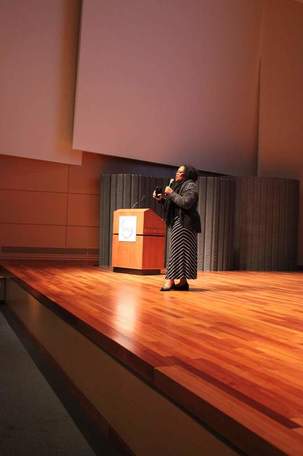 Good morning! I’m honored to have been invited to speak with you today. And I’m not just saying that because that’s what people who give keynote addresses are expected to say at the top of their speeches. I’m honored because by choosing to be a part of today’s symposium, you have taken steps that will forever change the way you look at yourselves and interact with the world. You have crossed a threshold that will forever demand the very best of who you are and ask that you position yourselves in your classrooms, communities, and workplaces as citizen arts leaders. And I’m glad you’ve chosen to be here because these are challenging and turbulent times for the arts. Now, I don’t say this to disparage you. Quite the opposite, in fact, I say it to galvanize your spirits, to rouse your revolutionary heart, and to mobilize your efforts towards resistance! With what we’re up against, it’s going to take every single one of us working together to get ahead. As you know, this past Thursday, the current Administration unveiled a budget plan that calls for an increase in military spending. In order to pay for this increase, the Administration suggests that Congress eliminate a whole host of agencies that assist children and the poor; offer guidelines for agricultural, labor, and environmental protections; fund scientific research; aid our allies abroad; and support a multitude of arts and cultural organizations across our nation. By the way, this budget plan is called, “America First: A Budget Blueprint to Make America Great Again.” Now, as a progressive Democrat, I have all kinds of things I could say about that and in a different speech, in a different room, I certainly would. But, at this moment, in this room, I’m reminded that I’m also the daughter and sister of Veterans. My parents served in the Army. My brother served in the Air Force and now works for the Army. My sister works for the VA. I believe in a strong military defense and I believe we should do whatever we can to take care of our soldiers. However, I don’t believe we accomplish this by destroying social programs or by compromising our food, water, and work places or by endangering our planet; and certainly not by gutting our creative economy. If passed, this budget will have a widespread and debilitating impact on our field. Mind you, together, the NEA, NEH, and the Corporation for Public Broadcasting receive less than a billion dollars a year. The revenue from this proposed elimination is a drop in the bucket. So, it’s a gesture. Of course, we, in the arts, understand the powerful and lasting effect of a gesture. And there is no doubt that losing this funding will have real and damaging consequences on the lives of the artists, administrators, audiences, and students that these organizations strive to serve. Confession: I’m one of those NEA supported artists. The world premiere production of my play, Intelligence, was funded by the 2016 NEA Arts Works grant. We opened last week at Arena Stage. The play is a piece of historical fiction about courage. It explores the consequences of speaking truth to power. Specifically, it’s a story about the lies that led to the war in Iraq, the impact of the war on the Iraqi people, and what happened when the Bush Administration retaliated against two U.S. citizens because the truth of those lies were revealed. The demand for tickets was so great that Arena Stage extended the run two weeks before we started rehearsal. Now, I don’t mention this to brag, though I certainly am proud, I mention this because it speaks to a hunger that audiences have for stories about courage. The day after we opened, I headed back to Chapel Hill, where I work and live. I met a woman at the airport, who is in her 70s. We’re on the same flight and chatted about our reasons for being in DC. I told her about the play. She placed her hand on my cheek and said, “Thank you. This work you artists do, it takes such courage. And that’s what we need right now. I keep telling my children. We have to pay attention to what is happening right now. We have to record what’s happening to our country. For history. And we have to have the courage to speak out against what’s happening when it violates our civil rights and freedoms.” This woman’s words reminded me of what Toni Morrison so wisely observed about the role of artist during times of great strife and uncertainty. She wrote: There is no time for despair, no place for self-pity, no need for silence, no room for fear. We speak, we write, we do language. That is how civilizations heal. But in order for artists to do this work, we have to have smart, passionate, fearless citizen arts leaders and that’s where you come in. One of the first orders of business that you have ahead of you is to fight the narrative that our field is expendable. We have to shift the narrative away from “art for art’s sake” and “art as self-expression” to art as a vital contribution to the economic vitality, growth, and sustainability of our communities. And we have to start with ourselves. We have to pay and equitable and livable wage to the staff and artist that we employ. Of course, we have to raise revenue in order to do this, which means we have to be relevant. To do this, we have to appeal to more people and reflect our communities. Now, I don’t run an arts organization as many of you do or one day will. I’m an artist, a citizen artist. This is an important distinction. Because as a black, cisgender female from a poor, working class family, I learned early in life that I’m part of a community of people whose voices have been silenced, whose images have been distorted and misrepresented, and whose legacy has been erased and exploited. I grew up in East Texas in a township of sorts called Tennessee Colony. It’s lush and green. There are lots of trees for climbing, lakes for fishing and swimming, and open skies for dreaming. There are also more cows than people and a healthy dose of racism, sexism, and classism served daily. These systems of oppression were unrelenting and did a great deal of damage to my self-esteem, optimism, and enthusiasm for life. Thankfully, the love, strength, and support of my parents transformed my experience and primed me for the work I do today. As part of my work as a citizen artist, I’m an advocate for justice, access, equity, diversity, and inclusion. My core mission is to dismantle systems of oppression. Often, I think about this work in terms of absence. What stories aren’t being told? Whose voices aren’t being heard? Who isn’t hired to lead an organization or to helm the production? Who isn’t invited to table? Who isn’t even in the room? And I want to encourage each of you to do the same. Perhaps you can begin each day by asking:
These questions are essential to the work I do as a playwright. You see, I write in order to make sense of the world. And my god, what a time to be alive trying to do that! Sometimes I feel lost to the hatred, bigotry, violence, and poverty faced by so many. But with a play, I’m able to lay out all sides of the story, hear all of the voices, and portray a myriad of responses to the many situations people face in life. On stage, we can capture an intimate portrayal of the strange, beautiful, curious, brave and vulnerable human experience. We are able to explore the various ways in which people live and how we behave towards one another. We can process the immediate and residual impact of decisions. We can examine the damaging and devastating consequences of our neglect as well as the impact of our good deeds on a community. But in order to do this well, we have to have as full, deep, and complete a picture as possible. As image makers, we have an important role to play in moving audiences beyond superficial and stereotypical representations of peoples and cultures and toward three dimensional representations that encourage deeper learning with honor and respect. I place women and people of color at the center of my plays. I write these characters with depth, passion, wisdom, and flaws, but also with a yearning for love, hope for better days, and despair for all that will never be. I do so because when you see a person of color on the street, I want you to see us for who we are as individuals and not for the impressions left on you by stereotypical representations perpetuated by mass media and the arts world. Once, I was asked by someone inspired by my social media advocacy, "Do you ever feel that you’re ‘beating a dead horse’ when it comes to addressing issues of Equity, Diversity and Inclusion in the American Theatre?” I’ll tell you want told them: It’s disappointing when regional theatres continue to produce all/a majority of plays written by white men that are directed by all/a majority of white men. It’s disheartening that gender equity struggles to be intersectional and inclusive. It’s frustrating that issues of age, class, disability, and sexual orientation live in a land of etcetera. However, I remain hopeful and ever stalwart. I'm encouraged by an increasing number of individuals and theatre companies, who are embracing diversity, working to be more inclusive, and supporting a multitude of voices. What’s more, I am inspired by the number of theatre leaders who are committed to creating spaces for equity and access for all theatre artists. But it’s hard. Hard as hell. But doing nothing is harder still. So, I never think in terms of losing faith. I think in terms of time. How much time can I devote each day to bring awareness and support of others around these issues. For what little time I have on this earth, I will do all that I can to advocate for progress and change. But again, citizen artists cannot do this work alone. We have to have citizen arts leaders, who are ready to step up, who make social awareness, cultural literacy, and racial consciousness a central part of their work, practice, and vision. As gatekeepers, you are in a unique position to do this work and create change. Of course, none of this work is easy, but that’s what makes it so necessary. This work began for me in earnest at a meeting similar to this one. In 2012, I was nominated to be one of Theatre Communication Group’s Young Leader of Color. One of our first sessions was a Values Clarification Workshop led by motivational speaker, Paul Robinson, of the Wilder Center for Communities. In this workshop, we defined our core values and established a broader and more comprehensive understanding of what it means to be leader. This was such a meaningful experience. While I won't be able to capture it entirely, I want to share a bit about what we learned. First, Paul had us define our individual Core Values. These values are what matter to us; what we can't live without; what defines us; what stimulates and inspires us; and what is central to who we are. In order for a value to be a Core or Touchstone value, they have to be:
As a leader, you have to have a clear idea of what your values are. You have to be able to stand up for your core values and defend them even in the most difficult of situations. Now, if you’re not living or practicing your core values, then you either need to adjust them or adjust your life! In other words, it’s a process and you're a work in progress! Translation: it takes time. But I should warn you! The thing about core values is that once you establish them, they will be tested constantly and at varying degrees of intensity. My greatest test to date happened a few years ago. I was working freelance living paycheck to paycheck. I never knew when the next gig would come or if it would be enough to cover the bills. Every phone call, message or email contained the possibility of work, so I checked my phone incessantly. I remember receiving an offer that would have made me comfortable for two months. In the freelance world, that’s a luxury. I was being asked to step in as a writer, but was warned that the situation was fraught. If I accepted, I would have to stomach the situation. I felt a rush of heat from my belly to my ears. I remembered all the times I had been asked to whitewash a situation and put conversations about racial consciousness and cultural sensitivity aside for the ease of the room. Then I remembered the line that I drew after that TCG meeting. It was an invisible, but palpable line that stood between what the world presented me and how I chose to be in the world. I knew I had to say no. If I had accepted, I’d never be able to advocate for equity in the workplace or continue the work that I'm doing around diversity and inclusion with any credibility. I learned a lot about myself and about the kind of leader I wanted to be at that moment. As leaders, we’re given great power and influence to impact the world around you. We’re uplifted and heralded because your values speak to the community. We’re also responsible to your community. Your actions and inactions matter. Let me repeat that: Your actions and inactions matter. The leader, who is aware of their role and their impact on their community, this is someone who is citizen arts leader. Like regular leaders, they have courage, vision, integrity, and a strong work ethic. But they also get out of their own way, check their ego at the door, and remain accountable for their actions. They are humble, discerning, and listen to the needs of their community. They are willing to say when they don’t know something and they aren’t afraid to admit when are wrong. Mostly importantly, they understand that leadership is a privilege and with that privilege comes a great deal of responsibility. Let me tell you right now, this kind of work takes time, effort, patience, and commitment. It’s as challenging as it rewarding, as exhaustive as it is rejuvenating. It requires hope in the greater good and faith in humanity, both of which at times will seem fleeting and nonexistent. There will be days when it feels like you’re starting over or that you never got anywhere at all. And on those days, you’ve got to hold on, dig in your heels, and keep going. Because that’s when you’re needed the most and we’ve never needed citizen arts leaders more than we do right now. So, thank you. Thank you for being here and showing up. Thank you for listening and for staying so engaged. I wish you all the best today and your days ahead!
Well, folks, this is it! After a week-long extension, some worthy critical praise, and nightly sold out performances, the world premiere production of Intelligence at Arena Stage is coming to a close. It's been such a remarkable and rewarding experience, and I found myself pushed harder as a playwright than ever before.
I'm so deeply appreciative to Molly Smith, Edgar Dobie, Khady Kamara, Greta Hayes, Amelia Powell, Daniella Topol, Jocelyn Clarke, Paul Adolphsen, the cast, crew and production team, and everyone at Arena Stage. We had an amazing time telling this surprisingly relevant and deeply urgent story of truth, power, and accountability. I'm also forever thankful to my dear friends, family, and colleagues who came out in support of the show. Over the next two weeks, I'm going to finish revisions of the post production draft and send the script off to a handful of interested theatres! After that, I'll get started researching and writing my next new play commission, Among These Wild Things, which explores the intersection of human rights and genetics. This play will receive a public reading at PlayMakers Repertory Company in the Spring of 2018. Click here to learn more. In the meantime, please enjoy this post, which includes the promotional video, several interviews, never-before-seen rehearsal production photos, and so much more. Intelligence: Power Playwright
Lawton’s new play, Intelligence—having a world premiere at Arena Stage February 24 through April 9—is a fictional account of Valerie Plame, whose identity as a CIA operative was leaked in 2003 after her husband publicly disputed George W. Bush’s claim that Saddam Hussein had nuke-ready uranium.
Matching Lawton with Plame—or with a series anchored by a Pulitzer Prize–winning chronicler of power like Wright—may seem an unlikely choice. Lawton, now 39, arrived in the District in 2006 and over time became known for plays about the African-American experience, including adaptations of Oedipus Rex and Anna Karenina that put African-American women at their center. The Hampton Years, her highest-profile production, told of artists at a historically black college. Last fall, she produced a set of ten-minute plays to accompany the Phillips Collection’s exhibition of paintings by Jacob Lawrence, chronicler of the “great migration” of African-Americans from the rural South. Yet Smith—who has long sought to find a voice that defined DC the way that, say, David Mamet’s streetwise style epitomizes Chicago theater—came to realize, after Wright’s and Strand’s successes, that what defined Washington was a topic, not a dramatic style. “It isn’t a single voice but a multiplicity of voices, writing about power and politics,” she says Click here to read the rest of the interview! Disputed Intelligence
“It’s so intense what’s happening right now,” said playwright Jacqueline E. Lawton in a recent interview. She could be talking, with some understatement, about the political garbage fire currently raging in Washington, D.C., and in a sense she is—but she also means it more specifically. Her new play Intelligence, running at D.C.’s Arena Stage Feb. 24-April 9, is about politically motivated leaks, disputed intelligence, and the string-pulling influence of what we now routinely hear called “the deep state” in matters of national security. But in her case, Lawton has gone back to not-quite-ancient history to tell a lightly fictionalized version of the 2003 story of diplomat Joe Wilson and his wife, Valerie Plame, a CIA agent outed to the press by forces close to the White House for her husband’s inconvenient dissent regarding the case for war in Iraq. That story’s direct resonances with—as well as some photonegative reflections of—one of the most headline-wrenching scandals roiling the still-young Trump Administration hardly need to be pointed out, not least because some of the same agencies and branches of government are involved.
Click here to read the rest of the interview! Why Lawton Was Uniquely Qualified to Write Intelligence
The hottest theater ticket in DC right now isn’t to a blockbuster musical, a star-studded Shakespearean play, or a big-time production already contracted to hit Broadway. The ticket everyone is clamoring for is Intelligence at Arena Stage, a world premiere political thriller which has already sold out and extended its run, even before it has opened.
JACQUELINE LAWTON: When I got the call for the commission, we knew it would be about DC politics and power [which is part of the series]. I knew that I wanted a woman at the center of the play. A woman whose experience influenced the political landscape and shaped the conversations that we have. There’s so many people who that could be. One important thing that I brought to the play was my family experience: my father and grandfather were both in military intelligence. So I’ve always been transfixed by the CIA and the world of intelligence. When you look at intelligence, it’s all about gathering information so that a decision can be made. But the thing is, those decisions are based on the shape of the intelligence as it is presented. What gets dangerous is when intelligence is influenced by ideology. That’s exactly what happened in 2003 when Bush took us into Iraq. Click here to read the rest of the interview! What Inspired Lawton to Write Intelligence
Truthful Intelligence: A Play about Power and Politics
Exactly eight days after Donald Trump was elected president, Oxford Dictionaries selected “post-truth”—defined as “relating to or denoting circumstances in which objective facts are less influential in shaping public opinion than appeals to emotion and personal belief”—as 2016’s international word of the year, citing a 2000 percent increase in usage compared with 2015.
However, those of us who followed the second Bush administration closely became familiar with what Stephen Colbert called “truthiness” much earlier. The sixteen words George W. Bush used in the 2003 State of the Union address, for example, claiming that Saddam Hussein had sought “significant quantities of uranium from Africa,” could have been called a lie, but, given that Bush says he believed they were true when he spoke them, they have instead gone down in history as “contested.” As playwright Jacqueline E. Lawton explores in her new play Intelligence, the ensuing Plamegate scandal—involving the outing of covert CIA officer Valerie Plame—was full of its own deep truths not just about American politics but also about life in America at the time. Click here to read the rest of the interview! Politics and Power onstage at Arena StageCostume Design Renderings by Ivania StackIntelligence CastRehearsal Photos by Kathy A. PerkinsIntelligence Promotional VideoClosing weekend is here. What an extraordinary ride. I can't thank you all enough for your support, enthusiasm, and encouragement. This has been a dream come true in every sense of the word. And thank you for celebrating the cast with me. It gives me such great joy to celebrate the artists who collaborated with me. We end our series with Hannah Yelland, who plays Valerie Plame Wilson, CIA Covert Operations Officer in the Department of Counterproliferations. When I said yes to radical changes that took the production from two acts to one, excised the exposition, and focused the narrative, Hannah bore it bravely. With her grace and courage, we all knew we'd be in good hands. In this interview, she speaks about her upbringing in the theatre, the relevance of this play, her relationship with her character, and what she hopes the audience considers when leaving the play. Please enjoy!  JACQUELINE LAWTON: To begin, why did you decide to get into theater? Was there someone or a particular show that inspired you? HANNAH YELLAND: My father is an actor back in England and I was brought into a very theatrical and artistic home. I guess the theatre world was just a very normal thing for me and when I was old enough to understand it- something that became an obvious choice for me. JL: Set in 2003, INTELLIGENCE is a historical fiction that examines the lies that led to the war in Ira, the impact of the war on the Iraqi people, and what happened when the Bush Administration retaliated against two U.S. citizens when the truth of those lies were revealed. Why do you feel this play is relevant to today’s audiences? . HY: I think it's just what you say, Jacqueline- two citizens were victimized really by an administration who wanted to cover up their lies. Unfortunately, we see it happening every day at the moment. People seem compromised wherever we look. It's a very human story- people caught between the duty they feel to their job, and their personal attitudes and beliefs. And any human story is a relevant one. JL: Who are you playing? What, if anything, do you have in common with this character’s passions, values, intentions, or belief system? HY: I'm playing Valerie Plame Wilson, the CIA Officer who lost her job after being exposed by the administration. I think I share many of her characteristics. She's very dutiful, very committed to both her job and her family. I have a 2 year old and have recently discovered the joy/exhaustion that entails as well as starting to work again after having her which is very different than before. I'm also an idealist and I think that Valerie, at least how I'm playing her- is one too, at heart. JL: What do you hope the audience walks away thinking about after experiencing this play? HY: As I shared in a recent interview, we all thought we would be doing this play in a very different political landscape and it would feel more like looking back in retrospect at a period in time which was obviously incredibly hard where government was trying to cover up what they were doing. Now we’re in a political situation where we have a government at the moment that just tell untruths and try to present them as the truth so it’s interesting in that respect. So, I hope audiences are moved and inspired by the story and feel invested and connected to a part of their history which is not that far in the past. JL: What’s next for you as an actor? Where can we follow your work? HY: I'm not sure yet. It's anyone's guess. But you can follow my work on my website: www.hannahyelland.com HANNAH YELLAND (Valerie Plame) makes her Arena Stage debut. Recent D.C. credits include Moment (Studio Theatre), Hermione in The Winter’s Tale (Shakespeare Theatre Company) and Laura Jesson in Brief Encounter (Shakespeare Theatre Company; visiting production by Kneehigh Theatre Company, Helen Hayes Award). Hannah originated the role of Laura in Brief Encounter on Broadway and received a Tony nomination for Best Leading Actress in a Play. She toured this production to A.C.T., St Ann’s Warehouse, The Guthrie and Wallis Annenberg Center. Other theater credits include Rachel in My Cousin Rachel (Gate Theatre, Dublin and Spoletto Festival); Nora in A Doll’s House (Abbey Theatre, Dublin); Kate in Nicholas Nickleby (West End and Chichester Festival, Toronto); and Vivie in Mrs. Warren’s Profession directed by Sir Peter Hall. TV/film credits include AKA, The Secret, Dalziel & Pascoe, Dinotopia and Agatha Christie’s Poirot.
Okay, folks, we're heading into closing weekend of Intelligence at Arena Stage! We have only five performances left. If you haven't seen the show, there are standing room tickets available! I had hoped to be there to celebrate closing weekend, but life and work have other plans for me, so I won't be able to get away. I must say, it's made sharing these actor interviews that much sweeter. Next up, we have Lawrence Redmond, who plays Joseph Wilson, former U.S. Ambassador. Larry speaks about his passion for theatre, the relevance of this play, his relationship with his characters, and where we can see him next onstage. Please enjoy! 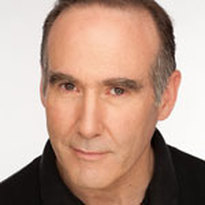 JACQUELINE LAWTON: To begin, why did you decide to get into theater? Was there someone or a particular show that inspired you? LAWRENCE REDMOND: I fell into theatre as an inspiration. While I grew up in a house where my father was a gifted musician, theatre became an outlet in High School. As things progressed, and I realized that I was never going to be the “High School Star” (it was a very competitive all-boys Military Catholic High School), I found other avenues like assistant directing and producing which I continued with into college, grad school and my early 20’s. That first show? It was Anything Goes! I fell in love from afar with the girl playing Reno Sweeney, and I was rapturous with the whole damn thing at 13! JL: Set in 2003, INTELLIGENCE is a historical fiction that examines the lies that led to the war in Ira, the impact of the war on the Iraqi people, and what happened when the Bush Administration retaliated against two U.S. citizens when the truth of those lies were revealed. Why do you feel this play is relevant to today’s audiences? LR: ‘Tis said that History doesn’t repeat itself, but it rhymes. I say in this play, more than once, that “the President lied”. In the world of 2003, the notion that POTUS would lie, to advance a held policy objective, regardless of facts in evidence, is a shock to the body politic. Yet, here we are in 2017 bandying about terms like “alternative facts” and “fake news”. Honestly, I remember in rehearsals saying out loud that I missed our 43rd President in retrospect. The most relevant thing for an audience member to take to heart is that for this flawed, yet noble, human experiment called The United States of America to work, it requires everyone’s input “to form a More Perfect Union.” We aren’t done yet. It’s unfinished, like the pyramid on the back of the Dollar Bill. . JL: Who are you playing? What, if anything, do you have in common with this character’s passions, values, intentions, or belief system? LR: If you haven’t figured it out from the previous answer, I’m playing Amb. Joseph Wilson. As I said to you once, Jackie, I believe that the subtitle of INTELLIGENCE is “Five Patriots”. Each person that we see is doing what they believe to be right for their country and their sense of self within that country. My mother was a Vice Consul in the Cuban Embassy, in the years before Castro. Her family had seen the effects of changes of government, both peaceful and radical. And still she loved her countries, both Cuba and the USA. And she trumpeted the best that those countries had to offer. That’s who Joe Wilson is. Sure, he’s brash. One woman on opening night said I had captured his “arrogance”. My Mother’s counsel would have said: Say the nastiest thing in the nicest way; that is the mark of a diplomat. So, I hope I have “captured his unshakeable confidence!” Wilson’s job was always to show the best of who we are, the best of who we wish to become. There is a reason it’s called the Foreign Service. Ultimately, those Ambassadors, and Consular officers serve the interests of the American people, and hopefully service those interests by setting the best examples of who we are as a nation to the world at large. JL: What do you hope the audience walks away thinking about after experiencing this play? LR: I think two basic things. The first is that the work of Intelligence is tirelessly boring holes through hard boards. Mistakes can be made in haste and we repent in lost lives and treasure. Secondly, I hope people will understand why the present Secretary of Defense, former USMC Gen. James Mattis said only a month ago, “If you don’t fund the State Department fully, then I need to buy more ammunition ultimately”! JL: What’s next for you as an actor? Where can we follow your work? LR: What’s next is another world premiere of an entirely different variety. I’ll be playing the role of Steven Keaton in the stage version of the popular 80’s sit-com “Family Ties” at Human Race Theatre in Dayton, OH. That finishes up at the end of June. I expect to return to my home in Washington, DC to audition for projects for the upcoming season. That is, unless, some other theatre wants to give me another crack at Joe Wilson! LAWRENCE REDMOND (Joseph Wilson) was last seen at Arena Stage as Richard Russell in All the Way. Other Arena Stage credits include The Music Man, Ruined, Christmas Carol: 1941, Damn Yankees (Helen Hayes nominee), Passion Play: a cycle, South Pacific (Helen Hayes nominee), The Misanthrope, The Great White Hope, Guys and Dolls and Cat on a Hot Tin Roof. Earlier this season he was seen in Titanic (Signature Theatre) and A Prayer for Owen Meany (Cincinnati Playhouse in the Park). Other D.C. credits include A Midsummer Night’s Dream, Much Ado About Nothing and The Government Inspector (Shakespeare Theatre Company); Rock ‘n’ Roll and Jerry Springer: The Opera (Studio Theatre); and The Nutcracker, The Trip to Bountiful and Permanent Collection (Round House Theatre)
While it's hard to believe we opened Intelligence four weeks ago today, it feels impossible that we close on Sunday! Everything leading up to opening happened in slow motion. Well, except for tech and previews! And now, everything seems to have flown by. What an amazing journey! In the midst of everything, I'm delighted to have this opportunity to connect with my cast about their passion for theatre, the relevance of this play, their relationship with their characters, and where we can see them next onstage. Next up, we have Nora Achrati, who plays Leyla Nazari, a fashion designer and boutique owner. Please enjoy!  JACQUELINE LAWTON: To begin, why did you decide to get into theater? Was there someone or a particular show that inspired you? NORA ACHRATI: I'd been involved in theater through camps and plays as a kid, but I'd pursued other interests in college and grad school. My college roommate was a theater major, and became a local DC actress -- after we graduated, I'd go see her shows. We’re still very close. I got my MA in Arab Studies in 2006 and started working for a DC-based academic journal. I was working there when my friend, who was in a production of Mary ZImmerman's Arabian Nights at Constellation Theater, asked if I could come in as a language consultant for the show. I have such a strong memory of coming into that rehearsal -- they were already in the space, on stage -- and just marveling at how much fun they were having, and how much the work they were doing resonated with me. On my friend's recommendation, I signed up for after-work acting classes, and just fell deeper into things. I parted ways with my journal job in 2011. And here I am. JL: Set in 2003, INTELLIGENCE is a historical fiction that examines the lies that led to the war in Ira, the impact of the war on the Iraqi people, and what happened when the Bush Administration retaliated against two U.S. citizens when the truth of those lies were revealed. Why do you feel this play is relevant to today’s audiences? NA: We've joked in talkbacks that this play makes us nostalgic for a time when lies at this level of government had consequences. There are clearly parallels with what's going on right now here in the US, with our leadership. But it's also a reminder that some of the most significant global conflicts we're facing today -- the rise of ISIS, the refugee crisis, the unending conflict in Iraq and Afghanistan, and, arguably, the Arab Spring and its fallout -- didn't come out of nowhere. The seismic decisions a handful of people made fourteen, fifteen years ago -- the lies they told in service of those decisions -- had consequences that are still rippling across the globe. And still killing people. JL: Who are you playing? What, if anything, do you have in common with this character’s passions, values, intentions, or belief system? NA: I play Leyla Nazari, an Iraqi expat living in the US whose only family connection is her uncle, who lives in Jordan and whom she loves deeply. That love of family -- even family with difficult history -- really resonated with me. I'm just in awe of her drive and her bravery. JL: What do you hope the audience walks away thinking about after experiencing this play? NA: My hope is that people remember for as long as possible that behind every headline and news report are the full and real lives of people we'll never get to read about. A war isn't just a war; it's a personal catastrophe for every family living under bomb strikes, and for each member of their family living out of range. A leak isn't just a leak; it's the upending of livelihoods, and sometimes lives. I know this play reminded me viscerally of how much power we allow a relative few individuals -- our elected officials, and their unelected teams. It reminded me that we can't afford to check out. JL: What’s next for you as an actor? Where can we follow your work? NA: I'll be at Imagination Stage (along with our amazing Intelligence SM, Trevor Riley!) performing in The Jungle Book from April 22-May 28. In the fall I'll be playing the Waiter in Death of a Salesman at Fords (alongside Intelligence's Aakhu TuahNera Freeman)! NORA ACHRATI (Leyla Nazari) is thrilled to be making her Arena Stage debut with Jacqueline Lawton’s new work. Recent D.C. credits include Where Words Once Were (u/s, the Kennedy Center Theater for Young Audiences) and Falling Out of Time (Theater J). Nora is a proud member of the artistic ensemble at Forum Theatre, where she most recently appeared in I Call My Brothers and The Last Days of Judas Iscariot. She is a narrator of recorded books for the Library of Congress, and writes and performs folklore-based shows with New Moon Theater in Baltimore, MD. Nora holds an M.A. in Arab Studies from Georgetown University. Her work and her love are dedicated to her husband Bradley and son Omar. www.norafachrati.com
As we continue the count down to the final performance of Intelligence at Arena Stage (and enjoy a special 10:00pm performance tonight!!!), I thought it would be nice to get to know our lovely cast a little better. I had a chance to speak with them about their passion for theatre, the relevance of this play, their relationship with their characters, and where we can see them next onstage. Next up, we have Ethan Hova, who plays Dr. Malik Nazari, the former head of Iraq's Chemical Weapons Testing Program. Please enjoy! 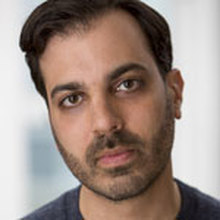 JACQUELINE LAWTON: To begin, why did you decide to get into theater? Was there someone or a particular show that inspired you? ETHAN HOVA: As a child, I remember being brought - against my will - to a production of Jesus Christ Superstar at a local college. I fully expected it to be a dusty play about historic religious figures, and I remember being shocked and entralled from the first electric guitar riff. It feels funny to say my expectations of what theatre could be were challenged by an Andrew Lloyd Weber musical, but that experience made theatre feel relevant and cool to me as a child. JL: Set in 2003, INTELLIGENCE is a historical fiction that examines the lies that led to the war in Iraq, the impact of the war on the Iraqi people, and what happened when the Bush Administration retaliated against two U.S. citizens when the truth of those lies were revealed. Why do you feel this play is relevant to today’s audiences? . EH: Well, it's always relevant to feel empathy and a genuine connection to humanity, and in this way, good theatre is always relevant. More specific to this play, however...we have a complicated relationship with truth in this country, especially when it comes to politics, and that relationship has only gotten murkier since Bush held office. It's important to ground ourselves in our recent history, and realize that these monumental betrayals paved the way for the abuses of reality we're seeing in the current administration. JL: Who are you playing? What, if anything, do you have in common with this character’s passions, values, intentions, or belief system? EH: I play Dr. Malik Nazari, the former (ficticious) head of the Iraqi chemical weapons program. We meet Malik years after his involvement in war crimes, and he's changed a lot. I think we share a sense of optimisim and trust in people. JL: What do you hope the audience walks away thinking about after experiencing this play? EH: I hope people walk away thinking about the impact of the war on the lives of Iraqi citizens, and how our current administration may be similarly interested in declaring war under dubious or outright false pretenses. JL: What’s next for you as an actor? Where can we follow your work? EH: I move back to New York after Intelligence closes and I'll be working to develop new work with several playwrights there. You can learn more about what's next at my website: ethanhova.com. ETHAN HOVA (Dr. Malik Nazari) makes his Arena Stage debut. He is a founding member of the New York theater collective, Exit, Pursued by a Bear and a member of Ensemble Studio Theatre. D.C. credits include Guards at the Taj (Woolly Mammoth). Off-Broadway credits include Metro Cards (Ensemble Studio Theatre); The Wong Kids in the Secret of the Space Chupacabra Go! (La MaMa); and Spinning the Times (Origin’s 1st Irish Theatre Festival, Best Actor Award Winner). Regional credits include Water by the Spoonful (Premiere Stages); Cock (Kinetic Theatre); and Tamara (Quantum Theatre). TV/film credits include The Blacklist, ER, E-Ring and Accepted. Ethan holds a B.F.A. from Carnegie Mellon University. Instagram: @ethanethane. www.ethanhova.com
As we count down to the final performance of Intelligence at Arena Stage, I thought it would be nice to get to know our lovely cast a little better. I had a chance to speak with them about their passion for theatre, the relevance of this play, their relationship with their characters, and where we can see them next onstage. First up, we have Aakhu TuahNera Freeman, who plays Elaine Matthews, the CIA Deputy Chief of Counterproliferations. Please enjoy! 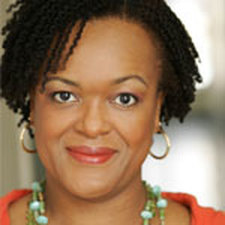 JACQUELINE LAWTON: To begin, why did you decide to get into theater? Was there someone or a particular show that inspired you? AAKHU TUAHNERA FREEMAN: I don't recall actually making a decision to go into theatre. Nor do I recall any particular inspiration. I do know that I never wanted to be anything other than an actor. Never ever. JL: Set in 2003, INTELLIGENCE is a historical fiction that examines the lies that led to the war in Ira, the impact of the war on the Iraqi people, and what happened when the Bush Administration retaliated against two U.S. citizens when the truth of those lies were revealed. Why do you feel this play is relevant to today’s audiences? ATF: The play is relevant today because we're currently being bombarded by lies. Not only lies, but lies with impunity, lies being referred to as 'alternative facts'. I think the play reminds us of the damage done to the citizenry when people in government are allowed to lie and act on those lies. JL: Who are you playing? What, if anything, do you have in common with this character’s passions, values, intentions, or belief system? ATF: I play Elaine Matthews. The character is passionate about what she does. I'm passionate about what I do. However, that's where our similarities end. Our belief systems, politics, values, etc. are totally opposite. JL: What do you hope the audience walks away thinking about after experiencing this play? ATF: I hope people will leave thinking about what truths they can speak to resist what is currently happening in the U.S. government. JL: What’s next for you as an actor? Where can we follow your work? ATF: My next project is "Proof" (Claire) at Olney Theatre, opening in May, and "Death of a Salesman" (Jenny), opening in October at Ford's Theatre. AAKHU TUAHNERA FREEMAN (Elaine) is happy to return to Arena Stage where she previously appeared as Clara in The Great White Hope, Sue in All My Sons and Della in The Royal Family. Other credits include Rose in Fences and Mrs. Coleman in The Soul Collector (Everyman Theatre); Mrs. Breedlove in The Bluest Eye and Gerthe in Insurrection: Holding History (Theater Alliance); Cat on a Hot Tin Roof and four national tours (the Kennedy Center); Much Ado About Nothing and Richard III (Folger Theatre); Our Lady of 121st Street (Woolly Mammoth); Something You Did (Theater J); and Amen Corner (African Continuum Theatre). Her most recent performance was in Fresh Brewed: Tales from the Coffee Shop in Riyadh, Saudi Arabia.
|
My BlogI'm a playwright, dramaturg, and teaching artist. It is here where you'll find my queries and musings on life, theater and the world. My posts advocate for diversity, inclusion, and equity in the American Theatre and updates on my own work. Please enjoy!
Categories
All
Archives
June 2020
Reading List
|

